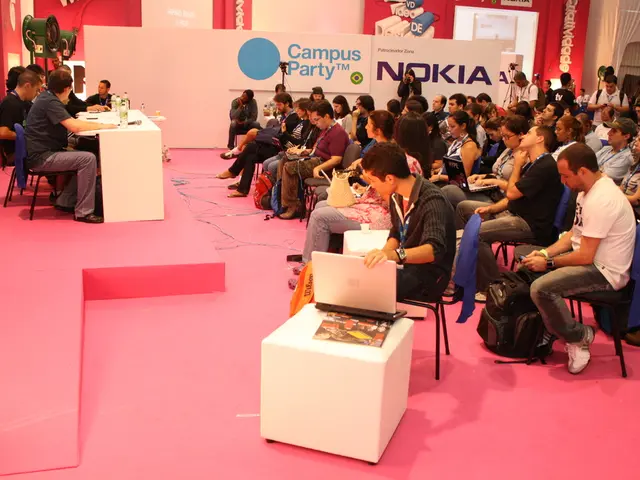Booming Lego: Soaring Revenues and Profit Margins in 2024
Lego's revenue and profit margins have been on the rise, surpassing the 10% mark, allowing the Danish toy giant based in Billund to pour money into projects ensuring a prosperous future for their playthings. This growth in demand for Lego toys in the United States and Europe has resulted in Lego's half-yearly income reaching 31 billion Danish kroner (roughly 4.15 billion euros) in 2024, a 13% increase compared to 2023. Consumer sales climbed by 14%, while net income increased by 16% to 6 billion kroner (about 800 million euros), marking a billion-dollar leap from the first half of 2023.
Competitors in the toy industry have felt the wrath of Lego's market dominance as it bolsters its share, and the Lego Group proceeds with strategic investments in initiatives such as sustainability and digitization for short-term and long-term growth. The pace of these investments is set to escalate in the second half.
Lego's presence across pedestrian zones is a force to be reckoned with.
Lego CEO Niels B. Christiansen expressed delight over the results, despite the toy industry being sluggish. Despite this, Lego secured a significant worldwide market share, and the Lego brand remains more powerful than ever, he remarked. The enchanting variety of Lego products appeals to multiple age groups and interests, resulting in robust demand in the target markets.
Popular product series include Lego Icons, Lego Star Wars, Lego Technic, Lego City, and Lego Harry Potter. A staggering 300 new products were added to the range in the first half alone.
Christiansen highlighted the success of lego stores dotted across the globe, now exceeding 1,000. While most businesses have shifted their focus towards online shopping, Lego invests in both and creates a bond with consumers by offering the complete Lego universe through their physical stores. Although setting up such Lego Stores is expensive at the outset, they deliver satisfactory returns once established.
Christiansen pointed out that post-pandemic, it was surprising to see the resurgence of interest in physical shopping. Initially, people had speculated about the shift towards online shopping; however, this trend reversed after the pandemic.
Germany continues to be a critical market for Lego, Christiansen mentioned, citing it as one of the most significant markets. The German market may have experienced some fluctuations, but Lego's growth over the past five years has been exceptional.
Lego has made remarkable progress in enhancing the proportion of sustainable materials in its products, with 22% of a Lego brick now not derived from oil. According to Christiansen, this change doesn't affect the brick's feel, quality, safety, or durability.
This sustainable transition, believed to be resource-intensive, serves as a source of pride for Christiansen. "I am more proud of this than our financial results," he declared, emphasizing that Lego has demonstrated that high-quality products can be made sustainable.
The European Union, a significant market for Lego, has contributed to the company's robust demand in 2024. Lego's strategic investments in sustainability and digitization, initiatives that are central to the European Union's vision, have also helped Lego secure global market share.
Dive Deeper:
- The enduring story of Opel's automotive manufacturing spanning 125 years
- Traton examines potential battery factory site in Salzgitter, eyeing contract
- German automobile manufacturers seeing a decline in sales
- An intriguing debate surrounding working hours: Record or Flexibility?








